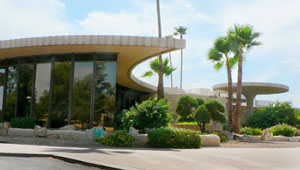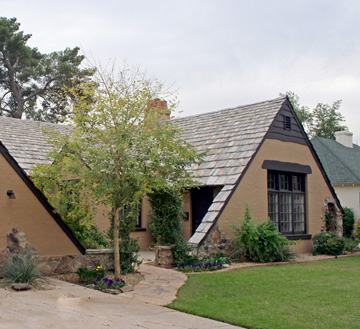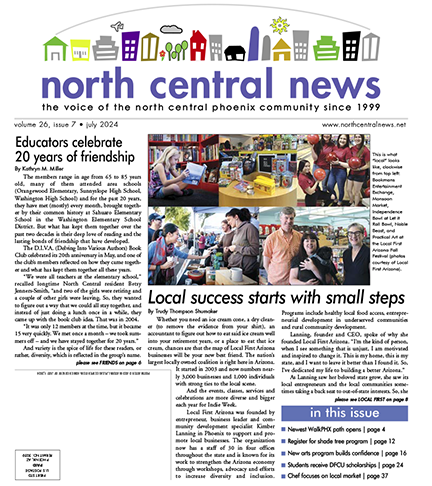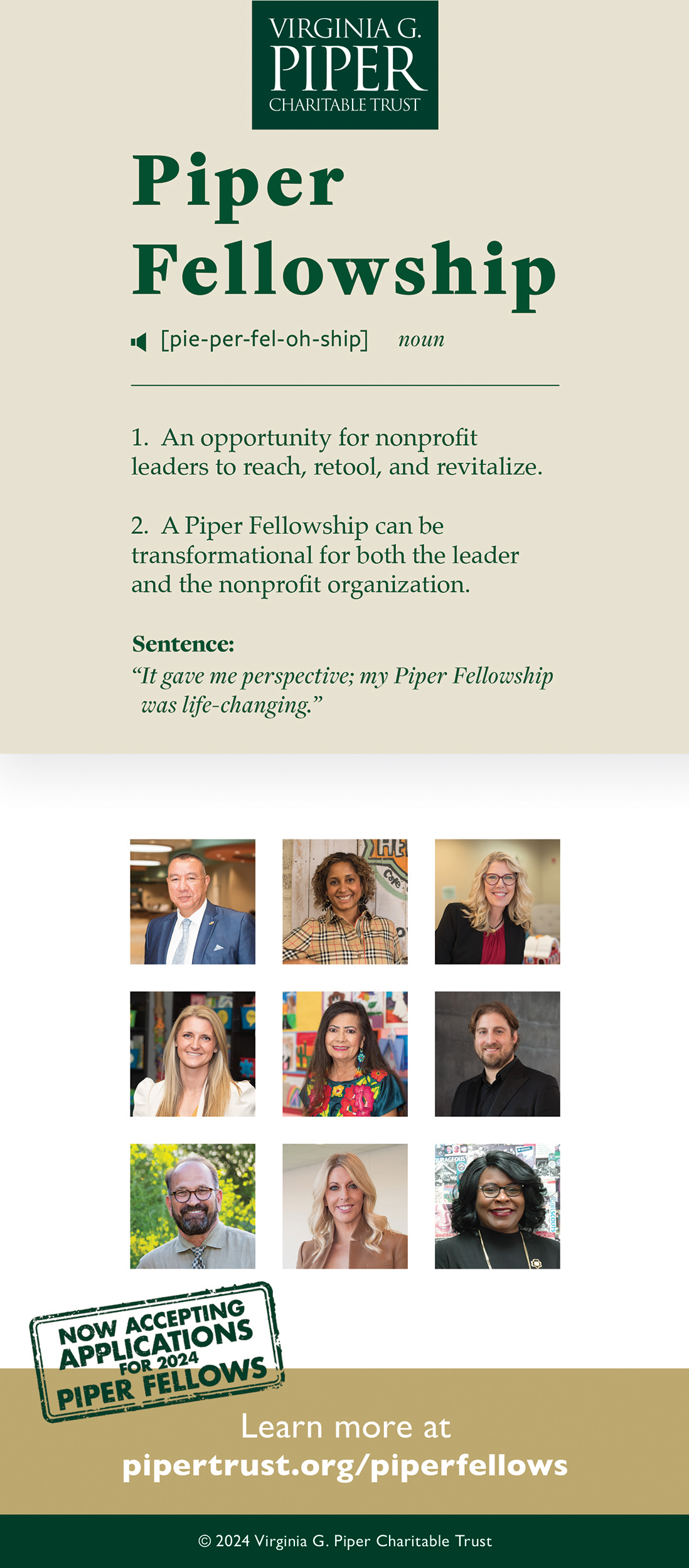[btn]By Teri Carnicelli[/btn]
Despite the recent cold snap, citrus trees around the Valley are becoming heavy with fruit that will ripen in the next couple of months. And North Central residents who are accustomed to taking their abundant oranges and grapefruits to Valley food banks to avoid spoilage and waste are now going to have to come up with another plan.
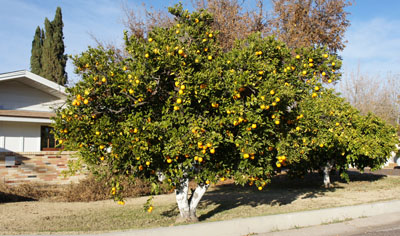
This mid-century home in the neighborhood south of First Christian Church is typical of the homes in the area, with plentiful citrus trees that are currently heavy with ripening fruit. This home has orange and grapefruit trees, as well as a small key lime tree that is bearing fruit for the first year (photo by Teri Carnicelli).
Last month, St. Mary’s Food Bank Alliance and United Food Bank announced they would have to restrict the citrus donations they accept this season because of the current Asian Citrus Psyllid (ACP) quarantine enacted by the Arizona Department of Agriculture.
ACP is a tiny pest that can spread the citrus greening disease. This disease has the potential to kill orange, grapefruit, lemon and all types of citrus trees around the state. The quarantine currently includes Mohave County and portions of La Paz, Maricopa, Pima, Santa Cruz, Yavapai and Yuma Counties. Though not yet found in Arizona, the citrus greening disease has been identified in California, and citrus crops in Florida have been decimated by the disease.
Citrus is an essential part of Arizona’s $17.1 billion agriculture impact on the economy and its protection is critical, said Ginny Hildebrand, President & CEO of United Food Bank.
“Arizona’s citrus is at risk and we all must take precautions to ensure that we contain the psyllid,” Hildebrand said. “Since our food banks distribute to multiple counties throughout the state, it is important that we do not facilitate the spread of the ACP, which could eventually lead to the presence of citrus greening disease in Arizona. The only way to ensure we comply is to not accept donations from the public.”
St. Mary’s Food Bank Alliance and United Food Bank received more than 3.5 million pounds of donated citrus from commercial and residential growers last year. This decision will cause the food banks to lose up to 50 percent of citrus donations.
To accommodate the quarantine, this year both food bank organizations, and their associate partner food banks including the Desert Mission Food Bank in Sunnyslope, will not be accepting any drop-off citrus donations.
“We all get inundated with donated citrus and most of the time we don’t know where it’s coming from,” explained Desert Mission Food Bank Director Sue Sadecki. “Locally, we understand that we are not in a particular quarantine zone. But given the extreme concern and the status of the ACP being verified in Arizona (but not yet the greening disease), we agreed to align with the position of St. Mary’s and United Food Bank.”
St. Mary’s Food Bank Alliance and United Food Bank will only be accepting citrus donations through approved commercial growers and the controlled gleaning programs of each food bank. However, community pantries such as those located inside churches, or other private, nonprofit programs, may continue to accept citrus donations for local distribution. A list of those groups that hand out food boxes can be found at: http://www.azfoodbanks.org/index.php/foodbank/index/. Click on “Complete Directory by City.” Note some information may be out of date. Factors that may contribute to acceptance are location (if the resident is within a quarantine or not) and the storage capacity of the organization. An additional list of local pantries can be found by clicking here.
St. Mary’s Food Bank is accepting reservations for gleaning at 602-343-5658 and online at http://firstfoodbank.org. Reservations will be accepted until all spots are filled. Gleaning will be conducted from mid-January through the end of March. There will be a fee for the service.
Homeowners should note that should a tree be found to have Asian Citrus Psyllid or the citrus greening disease, the fruit is still safe to eat.
For more information about the ACP citrus quarantine, visit agriculture.az.gov and azfoodbanks.org.



